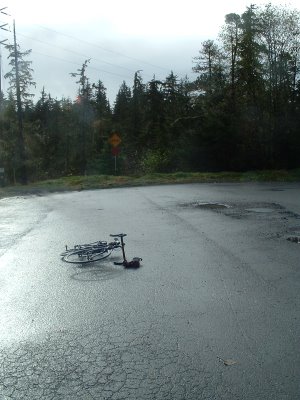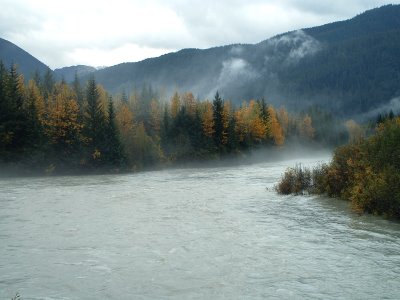 I read in a recent issue of Backpacker (yes, while goose-stepping on an elliptical trainer) an article exploring the argument that adventure is dead. Obese accountants can eat filet mignon while rafting through the Grand Canyon. Weekend warriors with low-grade GPS units can trek the furthest reaches of the Brooks Range. The summit of Mount Everest can be bought. This article made a lot of points, but the basic idea I came away with was that the age of information has rendered the death of discovery.
I read in a recent issue of Backpacker (yes, while goose-stepping on an elliptical trainer) an article exploring the argument that adventure is dead. Obese accountants can eat filet mignon while rafting through the Grand Canyon. Weekend warriors with low-grade GPS units can trek the furthest reaches of the Brooks Range. The summit of Mount Everest can be bought. This article made a lot of points, but the basic idea I came away with was that the age of information has rendered the death of discovery.It didn't leave me with any lasting disappointment. My opinion about exploration has always been that if I've never been there, it's new to me. I'll probably never vie to be the first person atop random peak #37 in the Alaska Range or to ride my bicycle across the frozen Bering Sea (not that I wouldn't love to ride from here to Russia.) But as long as I can wrap my adventure around dodging porcupines on a leaf-littered trail or carving tracks through thick, crunchy snow, I stay satisfied.
This human need to explore one's own surroundings is trumped by the even more primal need to do so before anyone else beats us to it. But we have satellite technology that can peer into every window on earth. Scrutinizing the detailed topography of Sibera is a simple matter of having $9.95 and an active eBay account. We know this, and so we're inclined to settle into life, taking comfort in the fact that everything's been mapped out for us. We sometimes feel a tinge of pity for people who whittle their time and savings away to become the first 37-year-old grocery store clerk with a bum knee to paraglide across XY glacier.
"That's, like, so been done."
I guess this is how we compensate for doing what's been done - we claw our way to the fringes, the furthest extremes, the only places left on earth where we feel like we can distinguish ourselves. In Alaska, I always hear about stomach-dropping new adventures, like the cyclists who ride the frozen Iditarod trail for 1,000 unbroken miles. But it never takes long to discover stories like those of Ed Jesson, a Dawson City caribou hunter who rode his bicycle over 1,000 miles over the frozen Yukon River to Nome. After spending one night at 48 below, Ed wrote in his diary:
"The oil in the bearings was frozen. I could scarcely ride it and my nose was freezing and I had to hold the handlebars with both hands, not being able to ride yet with one hand and rub my nose with the other."
He sounds so edgy yet vulnerable, so tied to the postmodern notion of exploration on the extreme fringes. Except for Ed wrote this particular entry in the year 1900. Ed was a gold rusher.
Adventure is more a way of being than an actual path, exploration more a state of mind than an actual game. I try to remember this with I head out to face a road route I've ridden dozens of times, or a fitness jog down a well-worn path.
I never fail to find something new.







